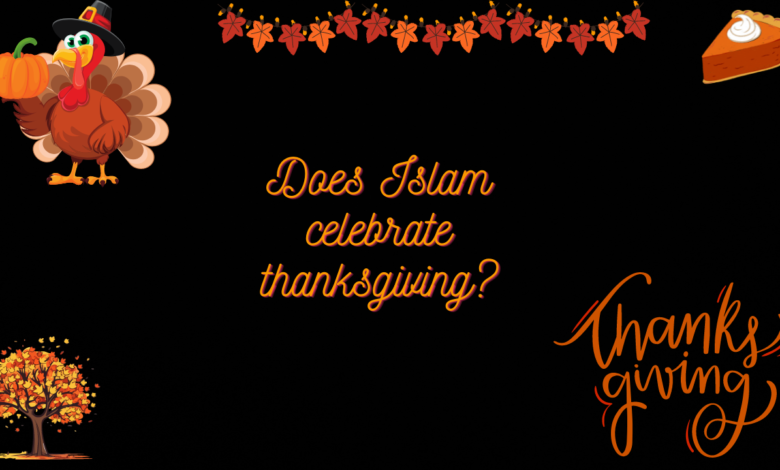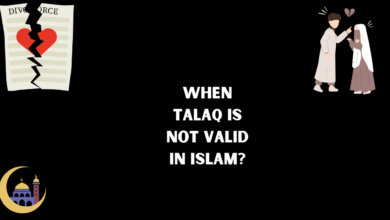Does Islam celebrate thanksgiving?

Introduction
Thanksgiving is a widely celebrated holiday in many parts of the world, particularly in the United States and Canada. It’s a time for people to come together, express gratitude, and share a festive meal. However, since Thanksgiving has religious and cultural origins tied to specific regions, some individuals may wonder how it fits into the context of different belief systems, such as Islam. In this article, we will explore whether Islam celebrates Thanksgiving and how the values of gratitude and unity align with Islamic teachings.
Thanksgiving: Origins and Traditions
Thanksgiving originated in North America, with its most commonly cited roots tracing back to the early 17th century when English Pilgrims and Native Americans shared a feast to give thanks for a bountiful harvest. The holiday has since evolved to emphasize gratitude for the blessings and relationships in one’s life, often involving gatherings with friends and family, and the sharing of a traditional meal featuring dishes like turkey, stuffing, and pumpkin pie.
Islamic Perspective on Gratitude
Gratitude (shukr) holds a significant place in Islam. Muslims are encouraged to be thankful to Allah (God) for the blessings they receive, both big and small. This sentiment of gratitude is beautifully expressed in the Qur’an, the holy book of Islam, where believers are reminded of Allah’s countless blessings and encouraged to show appreciation. In Surah Ibrahim (14:7), it is stated, “And [remember] when your Lord proclaimed: ‘If you give thanks (by accepting faith and worship), I will give you more [of My Blessings]; but if you are thankless (i.e., disbelievers), verily My punishment is indeed severe.'”
Thanksgiving and Islamic Values
While Thanksgiving as celebrated in North America has historical and cultural roots that are distinct from Islamic traditions, many Islamic scholars emphasize the compatibility of gratitude and unity with the teachings of Islam. The essence of giving thanks and acknowledging the blessings in one’s life aligns with the core values of Islam.
Gratitude: Islam teaches that every blessing, whether material or spiritual, should be recognized and appreciated as a gift from Allah. This aligns with the spirit of Thanksgiving, where people express gratitude for the blessings they have received.
Unity and Community: Islam places a strong emphasis on fostering unity and building strong bonds within the community. Thanksgiving gatherings, where family and friends come together to share a meal, resonate with the Islamic value of maintaining close relationships with loved ones and showing kindness to others.
Charity and Sharing: In Islam, acts of charity and helping those in need are highly regarded. This aligns with the idea of sharing blessings with others, as often practiced during Thanksgiving, where surplus food and resources can be shared with those less fortunate.
Conclusion
While Thanksgiving itself may not be an Islamic holiday, the values of gratitude, unity, and generosity that it promotes are in harmony with the teachings of Islam. Muslims are encouraged to express gratitude for the blessings they receive and to celebrate the relationships that bring joy to their lives. Embracing these values can foster understanding and harmony between different cultures and religions, promoting a sense of togetherness that resonates with both Thanksgiving celebrations and Islamic principles.
FAQs about Islam and Thanksgiving
Does Islam celebrate Thanksgiving?
No, Thanksgiving is not a religious holiday in Islam, and it is not traditionally celebrated by Muslims.
Is Thanksgiving recognized in Islamic culture?
Thanksgiving is not a part of Islamic culture or tradition. It is primarily celebrated in North America and some other parts of the world as a secular holiday.
Can Muslims participate in Thanksgiving celebrations?
Participation in Thanksgiving celebrations is a matter of personal choice for Muslims. Some may choose to participate in the holiday’s spirit of gratitude and togetherness, while others may choose not to, considering it a non-religious event.
Are there any religious conflicts between Islam and Thanksgiving?
Thanksgiving itself is not inherently conflicting with Islamic beliefs. However, Muslims should avoid engaging in any activities that go against Islamic principles, such as excessive consumption of alcohol, inappropriate behavior, or anything that contradicts their faith.
Are there any Islamic alternatives to Thanksgiving?
Islam has its own days of gratitude and thankfulness, such as Fridays (Jumu’ah) when Muslims gather for congregational prayers and reflect upon their blessings. However, these occasions are not equivalent to Thanksgiving in terms of their cultural or historical significance.
Can Muslims express gratitude and thankfulness in their own way?
Absolutely, Islam encourages believers to be grateful for the blessings they have received. Muslims are encouraged to express gratitude to Allah (God) in their daily prayers and supplications.






